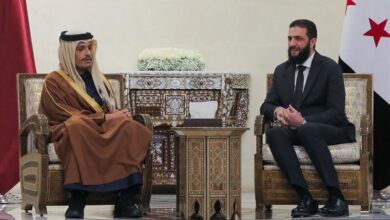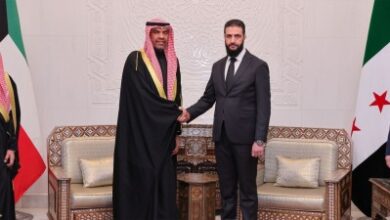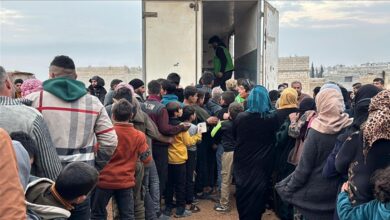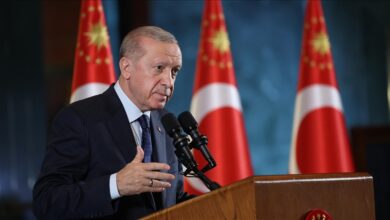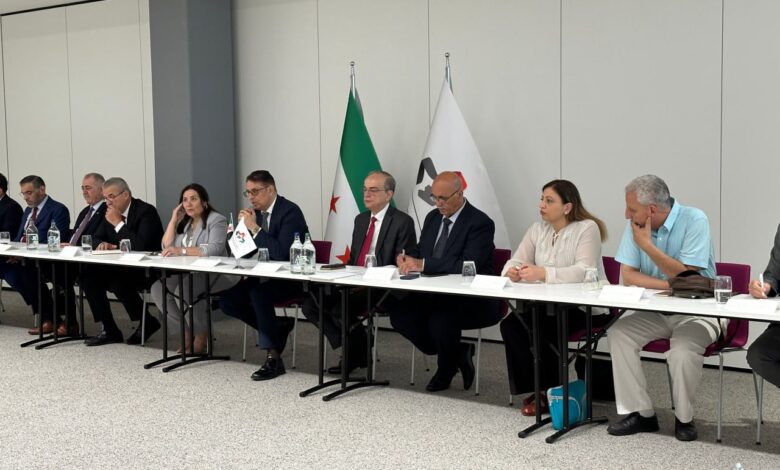
The Syrian Negotiation Commission holds its annual meeting in Geneva and discusses the latest developments related to the Syrian file
The Syrian Negotiation Commission (SNC) held a meeting in the Swiss city of Geneva between 17-20 November 2024, and discussed the latest developments related to the Syrian file and the political process.
The SNC issued a statement at the conclusion of the meeting, stressing that, on its first day, it discussed “the repercussions of the tense conditions in the region, as a result of the continued military hostilities of the Israeli occupation forces targeting residential neighborhoods in Gaza and Lebanon that left casualties and destruction and caused tens of thousands of Syrians, Lebanese and Palestinians to flee to Syria to escape the bombardment and war.”
The SNC called for “a ceasefire, an end to the targeting of civilians and civilian facilities in Gaza, Lebanon and Syria, and the implementation of the relevant Security Council resolutions. The main reason for what is happening in the region is the failure of the international community to implement international resolutions related to Syria, Lebanon and Palestine.”
The SNC expressed its condemnation of the Israeli bombardment that targeted the governorates of Idleb and Aleppo, which led to civilian casualties.
The SNC emphasized “the importance of the international community’s role in fulfilling the obligations it pledged and committed itself to, to pressure the Syrian regime to release all detainees, and reveal the fate of the missing people,” stressing that “what the Syrian regime is doing concerning the issuance of amnesty decrees is merely an attempt to circumvent, which has no real effect.”
The SNC’s statement said that it “engaged in the next two days in an expanded workshop, which included, in addition to the SNC members, a number of experts, specialists, civil society organizations, and members of the Syrian-American community.”
The statement added that the aim of the workshop is “to study the obstacles, challenges, and opportunities facing the Syrian people as they aspire toward a radical and comprehensive political solution that achieves political transition in accordance with the Geneva Communique of 2012, UNSCR No. 2254, and other relevant international resolutions.”
The statement pointed out that “the interventions and dialogues on the first day of the workshop included many topics, starting with the stagnation of the political process and its obstacles, and the expected regional transformations related to the Iranian presence in Syria.”
On the second day, the statement said that the workshop “continued to discuss the issue of early recovery from the perspective of the political process, and the challenges and opportunities that may arise in this regard. Then the discussions moved to international sanctions in terms of their goals and consequences on the Syrian people, and the ways to circumvent them followed by the regime and its supporters.”
The workshop reviewed “the effects of the regional war on the production and trade of Captagon by the Assad regime and the political investment in it, and the social and economic repercussions of this phenomenon.”
At the end of the workshop, the statement stated that the results of the US elections and their potential impact on the Syrian file were discussed, then the basic challenges facing the Syrian opposition and the possible opportunities facing it were also discussed.
The SNC’s statement indicated that “in all of these axes, practical recommendations were extracted that the SNC will study and benefit from in its continuing efforts to push the political process forward and reach its desired results that achieve the aspirations of the Syrian people.”

